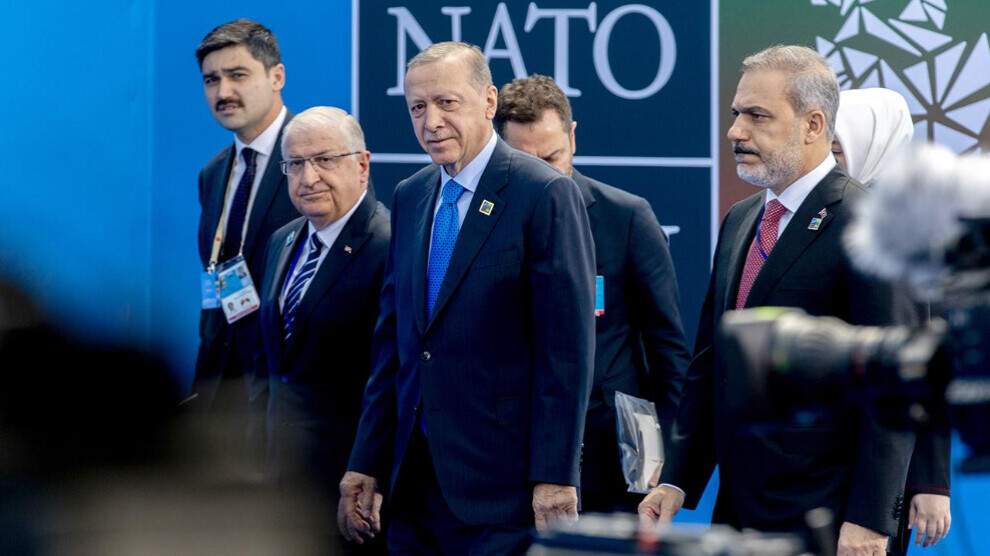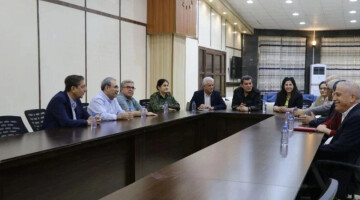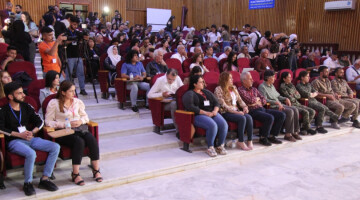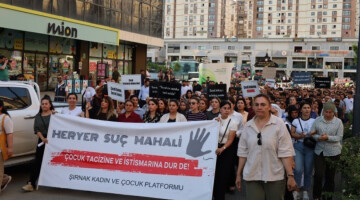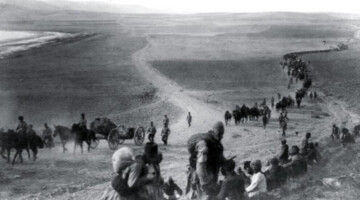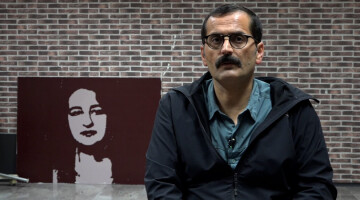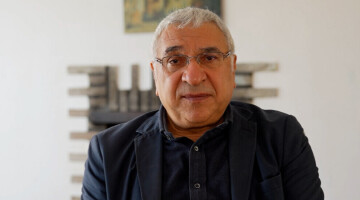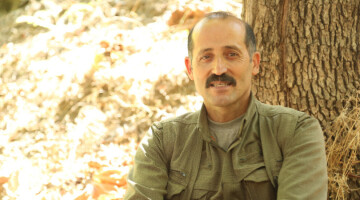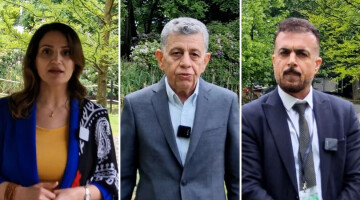The Turkish state's attempt to annex southern Kurdistan (northern Iraq) has mobilised many circles. All the parties in the Iraqi arena, from the US to Iran, are making direct or indirect statements. Attempts have been made even to reflect the Turkish state’s invasion plans at the NATO summit. While the initiatives of Turkish Foreign Minister Hakan Fidan and Iraqi Foreign Minister Fuad Husseini, who are in the US for the NATO summit, are being handled in this direction, the US statement that "coordination should be ensured with Baghdad and Erbil" and Iraq's statement that "no green light has been given" also point to occupation operations with "defined borders".
Turkish army in search for further settlement in the region
However, the Turkish army, taking advantage of the instability in Iraq and southern Kurdistan, accelerated its search for further settlement in the region. Trying to settle in a large part of Behdînan, the Turkish Republic continues to evacuate the region by burning villages. While the annexation of southern Kurdistan and Iraqi territories is carried out on the basis of international and regional agreements, the silence of the interlocutors, especially Baghdad, leads to such interpretations.
The Shiite community against Turkish occupation
The first serious reactions in Iraq came from Qeys El- Xezali, the leader of Asa'ib Ahl al-Haq Movement. The Shiite leader's statement "The Turkish army should withdraw from all Iraqi territories" is considered as the attitude of the overwhelming majority of the Shiite community in Iraq. In addition, the political circle led by Xezali is also known as an important part of Hashd al-Shaabi. The Coordination Framework, which is also strong and based in Baghdad, also makes statements in this direction, while the Sudani government follows a path that pacifies the reactions.
The role undertaken by the Sudani government
The Sudani government, minimising possible reactions in the region and in Iraqi public opinion, sent a delegation led by Iraqi National Security Advisor Qasim Ereji to Erbil after the meeting held on behalf of the Iraqi National Security Council. The main purpose of the delegation is to analyse the developments after the Turkish invasion mobility in southern Kurdistan. While Ereji and his entourage were hosted in Erbil as guests of Masrour Barzani, the delegation is expected to report the Turkish annexation to Baghdad based on the information provided by Barzani. However, while both Ereji and Barzani are labelled as "local collaborators" of the Turkish occupation and annexation in the public opinion in southern Kurdistan, one of Baghdad's main objectives is to prevent any reflexes that may arise.
Iraq’s discomfort: An occupation beyond its control
In particular, the Sunni political circles from the Iraqi central government have almost become the spokesperson of the Turkish occupation policy in Baghdad. Although statements from the central government wing, such as "no green light has been given" and "we reject the attacks", are confusing, this situation seeks more answers to whether Iraq has reached an occupation agreement with the Turkish state. The statements made by the Sudani government against Turkish operations from some official mouths are due to the fact that the Turkish Republic has gone beyond the agreement it reached with Iraq and has settled further in both southern Kurdistan and Iraq. As a matter of fact, the Turkish army ravaged the region and created new barracks with new military bases. Taking over some administrative tasks as well, the Turkish Republic is preparing to bypass both Baghdad and Erbil in the long run. Baghdad's biggest "discomfort" is to go beyond the agreement reached during Erdoğan's visit to Baghdad and to oppose a picture that is against its interests.
US approval on the basis of agreements
The remarks of US Secretary of State Spokesperson Matthew Miller, who said during the Turkish state’s first attempts to annex Behdînan that "coordination should be ensured with Turkey, Baghdad and Erbil" are also interpreted in this framework. While pointing to a concept that the US is also aware of, the "cautious" statements give the message that the Turkish Republic's act of knowing no boundaries is an operation with "defined borders". The main concern is perceived as preventing a situation getting out of control.
Turkey’s international search went all the way to the NATO Summit
The Turkish state, which accelerated its search for grounds for occupation in the international arena, wanted to carry this situation to the NATO summit held in the US. It is also stated that Iraqi Foreign Minister Fuad Hussein of the KDP discussed this situation with Turkish Foreign Minister Hakan Fidan and some US representatives in Washington within the scope of the summit. Hussein is expected to visit Turkey in the coming days and meet with Turkish Foreign Minister Hakan Fidan, Turkish Undersecretary of National Intelligence Ibrahim Kalin and Turkish Minister of National Defence Yaşar Güler. Hussein stands out as one of the biggest supporters within the Iraqi central government in legitimising the Turkish annexation.
Hussein’s efforts to exonerate the KDP
Moreover, Hussein is trying to conceal the role and place of the KDP in the Turkish occupation in the international arena and to point out the Kurdistan Freedom Movement as the target of the reactions. Hussein, who is also trying to recover the Barzanis' prestige in diplomacy and politics, is doing this with the "official" opportunities provided by the Iraqi central government.

